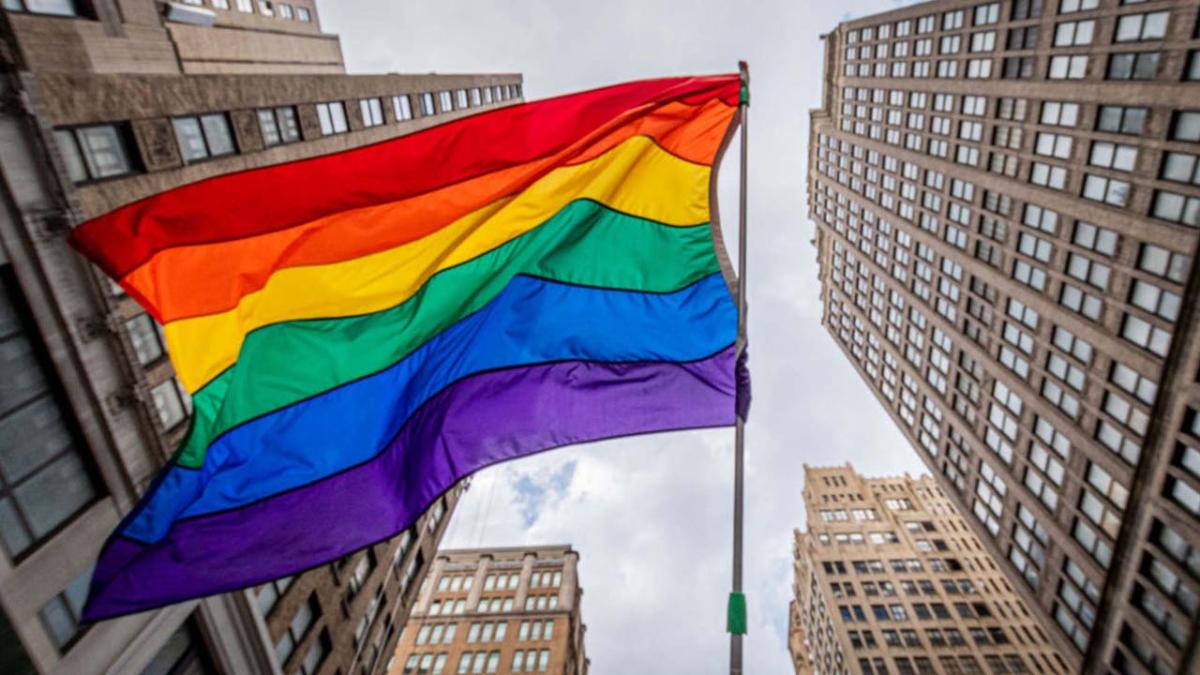Pride month also a time to raise mental health awareness of LGBTQ+ community
Beyond the celebrations, Pride month is also a time to raise awareness about mental health issues facing the LGBTQ+ community. PrPrPrison month is also a time to raise awareness about mental health issues facing the LGBTQ+ community. Data from The Centers for Disease Control and Prevention shows that LGBTQ+ adults are twice as likely to report they've been diagnosed with depression and nearly a third report poor mental health. Joy Alafia, executive director of the California Association of Marriage and Family Therapists, said that the current political climate is negatively affecting the mental health of this community, particularly in areas like the Bay Area where are perceived as progressive. She also highlighted the need for more members of the LGBT+ community to become therapists and for those seeking therapy to reduce barriers to accessing care. Alafia emphasized the importance of providing diversified culturally competent care and ensuring that people feel seen when they meet with their therapists.

ที่ตีพิมพ์ : หนึ่งปีที่แล้ว โดย AOL Staff ใน Health
OAKLAND, Calif. - Beyond the celebrations, Pride month is also a time to raise awareness about mental health issues facing the LGBTQ+ community.
Data from The Centers for Disease Control and Prevention shows LGBTQ+ adults are twice as likely to report they've been diagnosed with depression. And nearly a third report having poor mental health.
Many people from this community struggle to get the care and support they need.
In the U.S. there is legislation targeting the LGBTQ+ community in many places.
We spoke with Joy Alafia, executive director of the California Association of Marriage and Family Therapists.
"I can tell you firsthand that the current political climate is affecting the LGBTQ+ population. It is affecting the mental health," Alafia said on KTVU's The Four. "If you're constantly having to just fight to exist and be you, that takes a toll." She said this is also the case for locations like the Bay Area that have the perception of being progressive.
For LGBTQ+ people of color the challenges are compounded, she said.
LGBTQ+ youth are facing similar mental health struggles, with depression and anxiety, but Alafia said she's hopeful to see more acceptance among younger generations. "It's important to see the community get more support and to let people live authentically," she said.
"Right now we have a mental health crisis. There just aren't enough therapists for folks that want to help guiding through their lives," Alafia said.
At CAMFT, the group is focused on identifying ways to improve the pipeline to therapists and that people who seek help are free of any stigma that may be attached to seeking therapy.
"Some folks still have a stigma associated with seeing a therapist. We need to address that as well. Really understand that a therapist, I'd like to say, you take your car to get a tune up, you get an annual physical from your doctor. It's the same with therapy; they help counsel and provide support through life."
Alafia said it's important to reduce barriers to accessing care, but it's also important to provide diversified culturally competent care with the types of therapists they provide. "So people feel seen when they come to meet with their therapists," she said.
So what are some of the barriers?
Alafia says the barriers arren't always specific to this community. Cost is a big one.
"Insurance rates need to come down. For those lucky enough to have insurance, so the copay isn't as high and then we'll start to see more therapists being able to provide care while still earning a livable wage."
When seeking therapy, you want to have a connection with the person that you're speaking with. Alafia says it's important not only for more members of the LGBTQ+ community to become therapists, but to see mental health as an inclusive practice.
"We want to reflect the populations in general. For any underrepresented group, we want to make sure that we have these therapists available, so folks can be seen," she said.
CAMFT has training for everyone to have skills to work with various populations and communities. We have training on gender-affirming care.
The bigger challenge is being able to identify a therapist right now.
She points to some resources that can help you find a therapist in this situation.
หัวข้อ: Social Issues, LGBTQ
